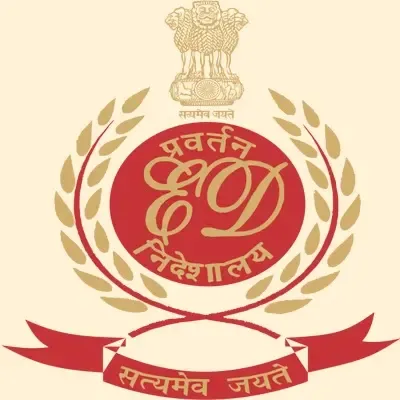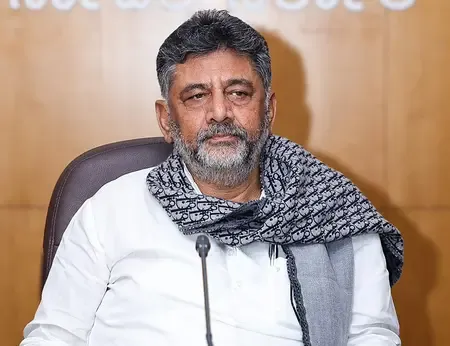What Led to the ED's Property Attachments in Bengal's GST Fraud Case?

Synopsis
Key Takeaways
- The ED has seized properties worth Rs 15.41 crore in connection with a GST fraud.
- Amit Gupta is the key figure behind the fraudulent activities.
- The total attachment in this case has reached Rs 20.70 crore.
- The fraud involved bogus GST invoices totaling Rs 794 crore.
- Further investigations are ongoing to uncover more details.
Kolkata, Sep 30 (NationPress) The Ranchi division of the Enforcement Directorate (ED) announced on Tuesday that officials have seized 10 immovable properties valued at Rs 15.41 crore in Kolkata and Howrah, West Bengal, as part of an extensive goods and services tax (GST) input tax credit (ITC) fraud investigation.
A press release from the ED indicated that the attached properties belong to Amit Gupta, a key figure in the fraudulent syndicate along with his associates.
The actions were executed under the Prevention of Money Laundering Act (PMLA), 2002.
To date, the cumulative value of assets attached in this case has reached nearly Rs 20.70 crore, as reported by the ED.
The investigation was initiated following a complaint from the Jamshedpur branch of the Director General of GST Intelligence in Jharkhand.
During the inquiry, ED officials discovered that the deceit involved the establishment of multiple shell companies operating not only in Jharkhand but also in West Bengal and Odisha.
The probe revealed that the syndicate issued bogus GST invoices with ITC totaling approximately Rs 794 crore for non-existent goods.
This operation was conducted in two phases, with the initial phase involving the issuance of forged ITC and the second phase focusing on selling this fraudulent ITC to entities in exchange for significant commissions.
The ED's findings suggest that the fraudsters amassed a total commission of nearly Rs 67 crore from their illicit activities.
The initial investigation by the Director General of GST Intelligence triggered Amit Gupta to convert his earned commissions into assets registered under the names of family and close associates, many of which were confiscated by ED officials on Monday.
In addition to Gupta, the ED apprehended three other suspects: Sumit Gupta, Amit Agarwal, and S.K. Deora.
All suspects are currently in judicial custody.
The investigation has confirmed that the syndicate generated a commission of around Rs 67 crore from these unlawful activities, which are considered as proceeds of crime.
Amit Gupta served as the main financial operator, playing a vital role in laundering this illicit income by purchasing numerous immovable properties.
The investigation uncovered Gupta's intentional efforts to hide these assets by transferring them to relatives and associates in the wake of the investigation initiated by the Director General of GST Intelligence.
The ED has already submitted a prosecution complaint against the accused to the Special PMLA Court in Ranchi, which has acknowledged the offense.
Additionally, a previous provisional attachment order was issued on July 3, 2025, seizing properties worth Rs 5.29 crore belonging to syndicate leader S.K. Deora.
The current seizure of properties valued at Rs 15.41 crore is part of ongoing efforts to track and attach the proceeds of crime.
Further investigations continue.








